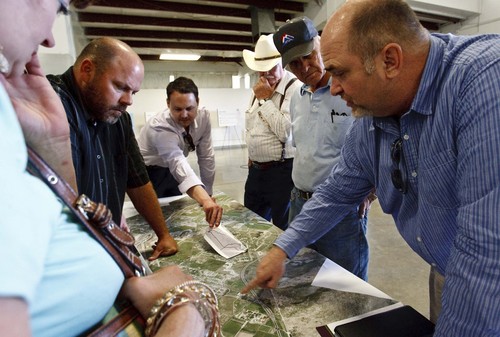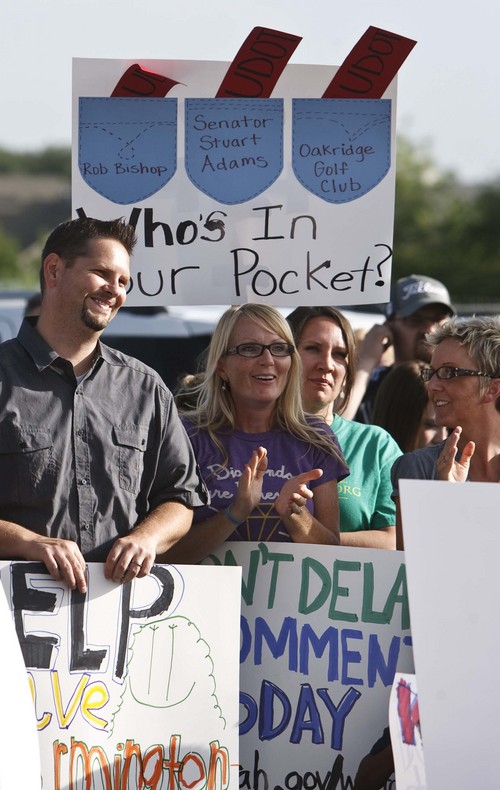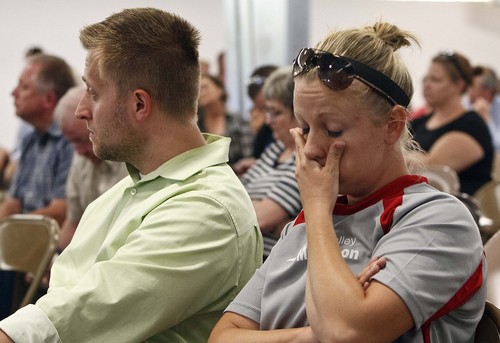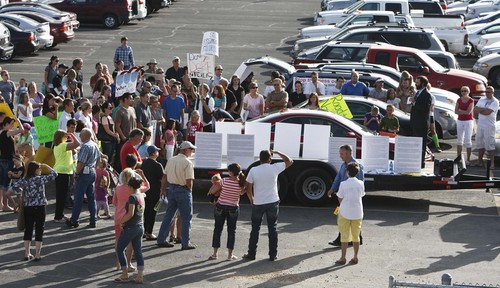This is an archived article that was published on sltrib.com in 2013, and information in the article may be outdated. It is provided only for personal research purposes and may not be reprinted.
The West Davis Corridor freeway has a new opponent: Farmington.
The city, where the planned freeway would begin, has joined the U.S. Interior Department, environmentalists and some citizen groups in opposing the route proposed for the northern extension of the Legacy Parkway along the Great Salt Lake.
"The current approach to the project frustrates the city's intent to remain a rural community" and would bring urban sprawl, says a summary of the city's concerns. It adds the freeway "will injure the quality of life of its residents, will injure the quality of the environment, will create economic losses and create other environmental injuries."
The city posted on its website a 19-page letter to the Utah Department of Transportation before a comment period closed last week on the final, proposed route for the freeway. It also posted a more concise three-page summary of arguments.
UDOT says it received more than 1,000 comments on the proposal and is working to digitize all the letters to post them online soon. Farmington didn't want to wait. "We posted our letter online because we want people to see and read our concerns now," said City Manager Dave Millheim.
One of Farmington's main complaints is that the proposed route ignores and fails to protect city conservation easements.
"They were set up as a buffer between the city and the lake," Farmington Mayor Scott Harbertson said in an interview. "It was set up so we wouldn't have any growth out there. Now we would have more urban sprawl" if the freeway goes through and ignores open-space protections.
Farmington's letter warns UDOT that "Farmington City is required by contract to protect these conservation easements from encroachment and intends to do so."
The city also argues the conservation easements should block the currently preferred alternative of beginning the new freeway at Glovers Lane. Residents there have been battling residents at Shepard Lane, another possible beginning point. UDOT says homes and businesses would be removed at either site, but the Glover Lane option would destroy fewer.
The city statement says, "There are issues with the Shepard Lane alternatives, but they are far less than Glover Lane."
Farmington also argues in its letter that UDOT's draft environmental statement does not provide "sufficient relevant information to allow meaningful feedback, discussion of whether such a road is needed, whether the trade-offs required are worth it and whether less damaging alternatives have been fairly analyzed."
It asks UDOT to redo the study and also look again at options that do not require a freeway.
Many critics support what they call a "shared solution" that includes improving existing roads to make it easier to drive from west to east, more transit options and more zoning that encourages self-sustaining neighborhoods and discourages driving.
Farmington's stance comes on the heels of an Interior Department letter opposing the freeway, saying it would irreparably harm Great Salt Lake wetlands that are important to birds. It also supports the "shared solution" instead of a new freeway.
"This is an indication of growing dissatisfaction and growing public consternation about the project. We hope that as opposition grows, it will encourage UDOT to reevaluate its plans," said Steve Erickson, spokesman for the Shared Solution Coalition of environmental and neighborhood groups opposing it.
UDOT has said it will take time to review comments and consider changes. It has hoped for final approval of a project route next year.









